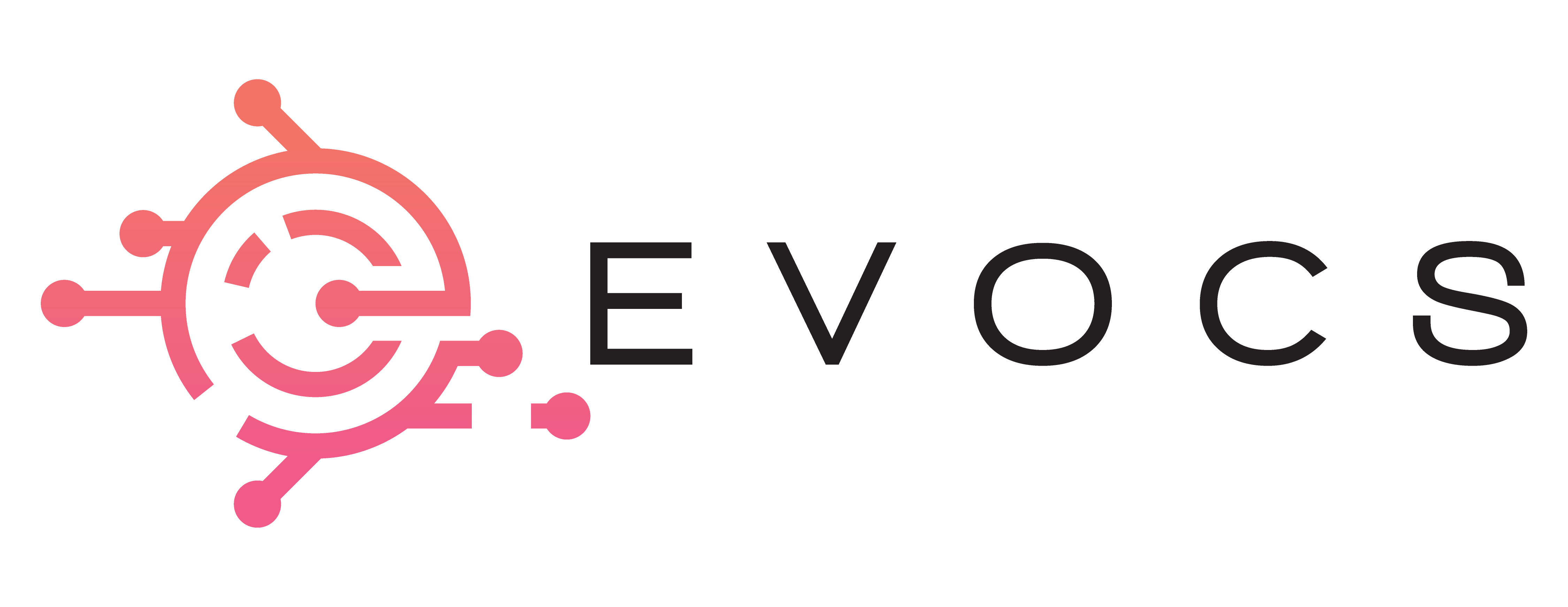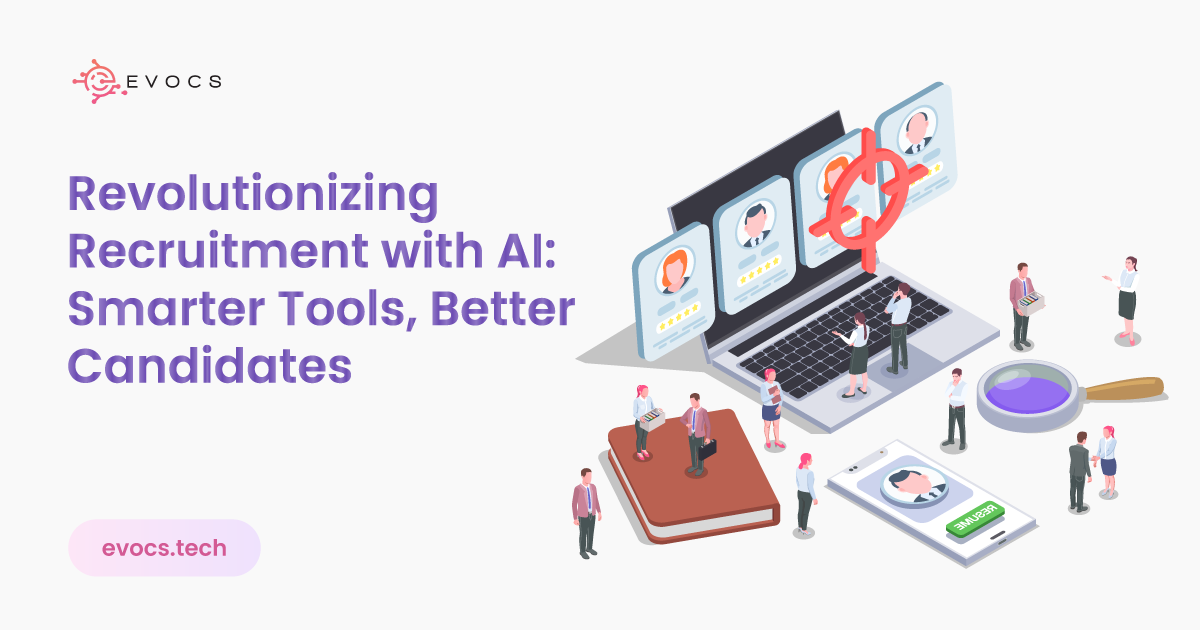
Finding the right person for a job can feel like a real uphill battle. Anyone who’s been involved in hiring knows the drill. You’re bombarded with applications, many of which are completely irrelevant. Manually reviewing it is not only time-consuming but also prone to human error. But what if technology could step into shoulder some of this burden?
That’s the promise of Artificial Intelligence (AI) in recruitment. AI offers a set of tools that can streamline the hiring process. In this blog, we’ll take a closer look at how AI addresses these recruitment challenges, explore the tools and benefits it offers, and consider why it’s becoming an indispensable part of the modern workplace.

AI-Powered Tools: The New Recruiter's Toolkit
Gone are the days when recruiters had to manually sift through stacks of resumes or spend hours coordinating interviews. Thanks to AI recruitment tools, hiring has entered a new era of efficiency and precision. Imagine having a virtual assistant that can automatically screen resumes, engage candidates, and even schedule interviews seamlessly. This is the reality of recruitment automation.
Applicant Tracking Systems (ATS) Enhanced by AI
At the heart of AI-powered recruitment lies the Applicant Tracking System (ATS), a tool that has been supercharged with artificial intelligence. Modern ATS platforms features like resume screening software to parse and analyze resumes, identifying top candidates based on keywords, skills, and qualifications.
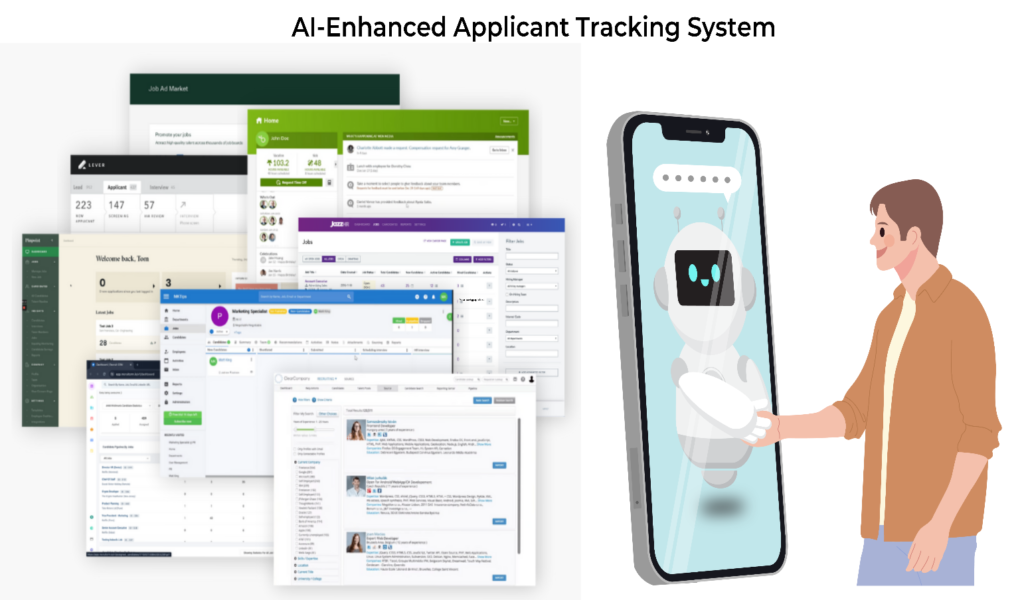
With AI sourcing tools, recruiters can also find hidden gems among passive candidates—those who aren’t actively job-hunting but are perfect for the role. The talent intelligence generated by these systems provides actionable insights, helping companies make informed decisions faster.
AI Chatbots: 24/7 Candidate Engagement
Communication is a critical part of the hiring process, and this is where AI chatbots shine. These virtual assistants can answer candidates’ queries instantly, guide them through the application process, and even conduct initial screening interviews.
Available round the clock, chatbots ensure candidates feel engaged and valued, enhancing the overall hiring experience. Imagine a candidate applying at 2 AM and getting instant confirmation and answers to their preliminary questions. This level of responsiveness is only possible thanks to AI chatbots.
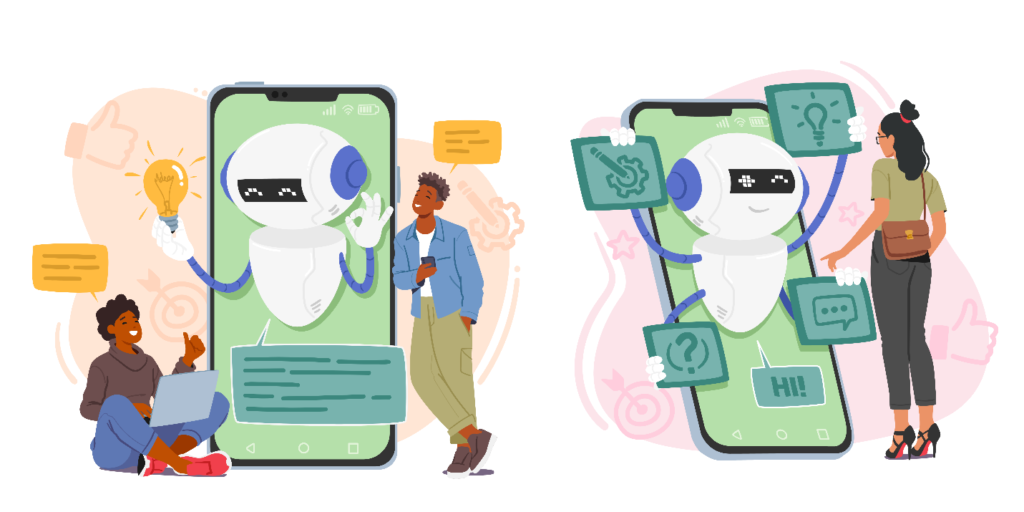
Predictive Analytics and Skills Matching
What if you could predict which candidate is most likely to succeed in a specific role? That’s what predictive analytics brings to the table. By analyzing historical data and assessing factors like experience, education, and skills, AI can forecast how well a candidate will perform.
Skills matching is another standout feature. AI tools compare a candidate’s abilities to job requirements, ensuring only the most suitable individuals move forward in the hiring pipeline. This eliminates guesswork and significantly improves hiring accuracy.

The Perks of AI: Faster Hiring, Fairer Decisions
When it comes to hiring, everyone wants the same thing: a quick, cost-effective, and fair process that delivers the best candidates. This is where AI in recruitment steps up, offering advantages that traditional methods often struggle to deliver.
So, what’s in it for you? Let’s explore the key benefits of AI in recruitment and how it’s changing the way we hire.
Faster Hiring: Reducing Time to Fill Roles
One of the standout perks of using AI is the speed it brings to the hiring process. By automating repetitive tasks like screening resumes and scheduling interviews, AI drastically cuts down the time to hire.
Instead of waiting weeks (or even months) to fill a position, recruiters can now identify and engage top talent in record time. This efficiency doesn’t just save effort—it ensures companies can keep operations running smoothly without long gaps in their teams.
Reduced Hiring Costs: Saving Resources
Hiring isn’t just time-consuming—it can be expensive. Beyond speed, AI can also lead to significantly reduced hiring costs. By automating repetitive tasks, companies can reduce the need for manual labor, lowering administrative expenses.
Additionally, by improving the quality of hires through better candidate matching, AI can minimize the costs associated with employee turnover. Making the right hire the first time saves a lot of time and money in the long run.
Mitigating Unconscious Bias: A Step Toward Fairness
Perhaps one of the most compelling benefits of AI in recruitment is its potential to mitigate unconscious bias in hiring. Human recruiters, despite their best intentions, can be influenced by unconscious biases based on factors like gender, race, age, or background.
AI algorithms, when designed and implemented correctly, can evaluate candidates based purely on their skills, experience, and qualifications, leading to more objective hiring decisions. This fosters diversity and inclusion in recruitment by creating a more level playing field for all applicants. It’s about giving everyone a fair shot based on what they can bring to the table.
Objective Hiring: Data-Driven Decisions
AI thrives on data, which allows it to make decisions based on concrete evidence rather than subjective opinions. This objective hiring approach ensures that every candidate is evaluated fairly and consistently. For employers, it’s a win-win: they get the best person for the job while ensuring transparency in the decision-making process.
Improved Candidate Experience
Let’s not forget the candidates themselves. AI-powered tools, like chatbots and automated updates, keep applicants informed and engaged throughout the hiring journey. A smooth, well-communicated process creates an improved candidate experience, leaving a positive impression on potential hires—even those who don’t get the job.
The Downside: Ethical Considerations and Potential Pitfalls
As with any groundbreaking technology, revolutionizing recruitment with AI comes with its share of challenges. While the benefits of AI in recruitment are undeniable, it’s crucial to shine a light on the potential downsides to ensure that its use remains fair, transparent, and ethical.
Here, we’ll explore some critical concerns, from algorithmic bias to data privacy in recruitment, and how organizations can address them responsibly.
1. Algorithmic Bias: A Flaw in the Code?
One of the main ethical considerations of AI in recruitment is bias in AI algorithms. AI is designed to make hiring fairer and objective. However, it can accidentally carry over biases from the data it was trained on.
For example, if past hiring data shows a preference for certain genders, ethnicities, or educational backgrounds, the AI may continue to favor these groups, reducing diversity in hiring. That’s why ensuring AI fairness is so important.
Solution:
To reduce the risk of algorithmic bias, companies should focus on creating algorithms that can spot and correct biases. Regularly checking AI tools and using a variety of diverse data can also help make the hiring process fairer.
2. Data Privacy: Protecting Candidate Information
The recruitment process often involves collecting sensitive personal information. With the advent of AI, massive amounts of candidate data are processed to enable features like resume parsing and candidate matching.
However, this raises concerns about data privacy in recruitment. How is this data stored, who has access to it, and how is it protected against breaches?
Solution:
Employers must comply with data protection laws, such as GDPR, and ensure candidates are informed about how their data will be used. Transparent policies and robust cybersecurity measures are essential to building trust and safeguarding privacy.
3. Transparency in AI Hiring: Who Makes the Decision?
AI is often seen as a “black box” technology, where the decision-making process isn’t easily understood by humans. This lack of transparency in AI hiring can lead to mistrust among candidates and recruiters alike.
For instance, if an AI tool rejects a candidate, how can it be explained? Was it due to a lack of skills or an arbitrary parameter set by the algorithm?
Solution:
Companies using AI must emphasize responsible AI practices by ensuring transparency. Explain how the AI system works, and what factors influence its decisions, and provide candidates with feedback whenever possible.
4. The Need for Human Oversight
While AI can automate and enhance many aspects of hiring, it should not replace human judgment entirely. The risk lies in over-reliance on technology, which can lead to impersonal or even flawed hiring decisions.
Solution:
A balanced approach—where AI handles repetitive tasks and humans make the final calls—is the best way forward. Human oversight ensures that ethical considerations are upheld while leveraging AI’s efficiency.
In the end, the goal isn’t just faster or cheaper hiring—it’s creating an inclusive and fair recruitment process that benefits both employers and candidates.
AI in Action: Real Companies, Real Results
The buzz around AI in recruitment isn’t just hype—real-world results are showing how transformative it can be. Businesses across industries are leveraging AI-powered tools to streamline hiring, enhance talent acquisition, and make smarter, data-driven decisions. Let’s explore some compelling AI recruitment case studies to see how companies are reaping the benefits of successful AI implementation in recruitment.
1. Siemens
- How they use AI: Siemens uses AI for candidate matching and ranking, primarily through their partnership with Eightfold AI. Their platform analyzes candidate data, including resumes, work experience, and skills, to identify the best fit for open roles.
- Verifiable results: According to Siemens, over 80% of their hires have come from using this technology. This statistic is often cited in articles and case studies about Siemens’ use of AI in recruitment.
2. IBM
- How they use AI: Siemens uses AI for candidate matching and ranking, primarily through their partnership with Eightfold AI. Their platform analyzes candidate data, including resumes, work experience, and skills, to identify the best fit for open roles.
- Verifiable results: According to Siemens, over 80% of their hires have come from using this technology. This statistic is often cited in articles and case studies about Siemens’ use of AI in recruitment.
3. L’Oréal
- How they use AI: L’Oréal uses AI-powered chatbots to engage with candidates, answer questions, and pre-screen applicants. They also use AI for video interviewing and skills assessment.
- Verifiable results: L’Oréal reported that their AI-powered recruitment process has led to a significant reduction in time to hire and an improvement in candidate satisfaction. They have publicly discussed the positive impact of AI on their recruitment efficiency and candidate experience.
4. PepsiCo
- How they use AI: PepsiCo uses AI-powered tools to automate various stages of the recruitment process, including sourcing, screening, and scheduling. They also use AI for talent analytics to identify trends and improve their recruitment strategies.
- Verifiable results: PepsiCo has publicly stated that using AI has helped them reduce time-to-hire by up to 60% for certain roles.

Revolutionizing Recruitment with AI: What’s Next in Hiring?
As the world of work continues to evolve, so does the role of AI in recruitment. While we’ve seen how it can transform processes today, the future holds even more promise. Let’s explore what’s on the horizon for revolutionizing recruitment with AI and how it’s set to shape the future of work.
Predictive Hiring
One of the coolest things happening is predictive hiring. Imagine being able to see into the future (well, almost!). AI uses data to predict which candidates are most likely to knock it out of the park in a specific role.
By looking at things like past performance, skills, and how well someone might fit into the company culture. This technology doesn’t just speed things up in the hiring process; it also gets much better at candidate matching, making sure companies find the perfect fit more efficiently.
AI-Powered Talent Marketplaces
Another trend that’s changing the game is the rise of AI-powered talent marketplaces. These platforms are like matchmakers for jobs and people, using AI to connect job seekers with opportunities that are a perfect match for their skills and what they’re looking for.
For recruiters, this means quicker access to a pool of highly qualified talent. For job seekers, it means a more personalized and streamlined way to find the right job.

Emerging Technologies in Recruitment
Besides predictive hiring and talent marketplaces, there are some other really interesting emerging technologies in recruitment making their way onto the scene. Here are a few to keep an eye on:
- Virtual Reality (VR) assessments: These let candidates step into a virtual job scenario to test their skills in a realistic, hands-on way. It’s like a try-before-you-buy for both the company and the candidate.
- Blockchain for credentials: This technology provides a secure and verifiable way to check a candidate’s qualifications and work history. It’s like a digital, tamper-proof resume.
- Hyper-personalized job recommendations: Imagine getting job suggestions that are perfectly tailored to your skills and interests. Advanced AI algorithms are making this a reality.
Summing it up
The journey of revolutionizing recruitment with AI is just getting started. With advancements like predictive hiring, AI-powered talent marketplaces, and other emerging technologies in recruitment, the future of hiring looks brighter and more dynamic than ever. Businesses that embrace these innovations will not only attract top talent but also stay ahead of the curve in a constantly changing job market. For both recruiters and candidates, the future is full of exciting possibilities—and AI is leading the charge.
